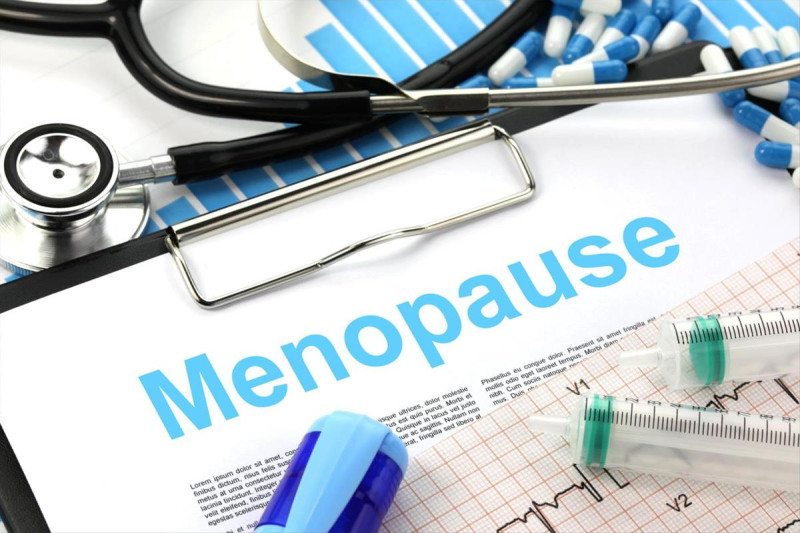2 January 2023 | Education and employment, Health and social care, Local government and communities
Breaking the Menopause Stigma – What Next?

"Menopause has been ignored and hidden away for too long. There is nothing shameful about women’s health, or about getting older. Supporting those experiencing menopause makes sense for individuals, for the economy and for society."
House of Commons' Women and Equalities Committee
Supporting individuals experiencing menopause is critical for tackling workplace discrimination. The current lack of guidance and legal obligations for organisations significantly affects culture and overall business outcomes, with a cost of over £100bn annually to the UK economy.
The fastest-growing employee demographics in the UK are women of menopausal age (50-64). The issues related to menopause intersect with other inequalities, taboos, and discrimination related to sex, age, and disability. And these challenges magnify for LGBTQIA+ people and those from minority ethnic communities. Menopause is part of a wider conversation concerning women’s healthcare and gender inequalities. Menopause symptoms contribute to the ‘brain drain’ from women leaving the workforce.
Lack of healthcare provision is the major barrier for those who experience menopause, particularly for those who suffer the most severe and debilitating symptoms. It is crucial to take a holistic approach to menopause, recognise the impact on mental health and well-being, and deliver menopause care for all.
At our recent Menopause conference, Rt Hon Caroline Nokes MP (Chair of the House of Commons' Women and Equalities Committee) advocated for mandatory menopause training for GPs and access to specialist services. She also highlighted the need for strong legislation to ensure that supplies of Hormone Replacement Therapy remain at the necessary levels.
In November 2022, NHS England launched the first NHS guidance on menopause. As the largest employer of women in the UK, this transformation aims to take leadership and spotlight the responsibility of employers to support their staff. Other organisations are already empowering their staff, reviewing policies, and providing training to encourage communication and confidence about menopause. They have achieved this transformation through conducting risk assessments, adjusting sickness policies to include menopause symptoms, and providing flexibility and necessary adjustments to the workplace.
The 2010 Equality Act encompasses menopause discrimination claims, given that employees experiencing harassment or victimisation can bring claims under the basis of sex, age, and disability. The Government restated this in their Menopause and the Workplace (opens in new window) paper (July 2022). This commits the government to prioritise menopause as a healthcare, workplace, and equality issue. However, the Women and Equalities Committee calls for menopause to be a separate protected characteristic to remove the obstacles to individuals speaking out, sharing their experiences, and enacting change.
To implement these desired changes, education is crucial. This will help people recognise the symptoms of menopause and empower them to request reasonable adjustments such as hybrid and flexible working. It will take a longer-term approach to transform menopausal awareness. Initiatives could include bringing menopause into the school curriculum and equipping young people with the knowledge and resources to understand menopause and identify harmful mindsets and practices.
While there has been substantial progress over the last year, the Government and others must to continue to advocate for greater menopause awareness and support. Menopause needs consistent discussion and involvement, not just on October’s World Menopause Day.
It is vital to take an inclusive approach and promote open conversations involving male allies, trans and non-binary individuals, and those undergoing early menopause or variations in menopause experienced because of health conditions or cancer.
To learn more about menopause in the workplace and contribute towards developing a positive, accessible environment for everyone experiencing menopause to thrive, join our Advancing Menopause Policy in the Workplace (opens in new window) online conference on the 26 April 2023.
Image credit: Creative Commons_Attribution-ShareAlike 3.0 Unported (CC BY-SA 3.0)
Events

The National Operating Theatres Show 2026
10 March 2026

The Annual Facilities Management in the Public Sector Show 2026
17 March 2026

The Future of Academies Show and Exhibition 2026
25 March 2026

The Annual Special Educational Needs and Disabilities (SEND) Conference 2026
25 March 2026

AI in Healthcare Conference 2026
1 April 2026
Courses

Women In Leadership
6 March 2026
-4 spaces available

Construction Leadership and Management Development Programme - CMI Level 5
10 March 2026
3 spaces available

Effective Leadership Through Emotional Intelligence - CMI Level 7 Award
17 March 2026
4 spaces available

Leaders in Construction Programme - CMI Level 7
24 March 2026
5 spaces available

Mastering Change Management Programme – CMI Level 7 Award
7 April 2026
5 spaces available